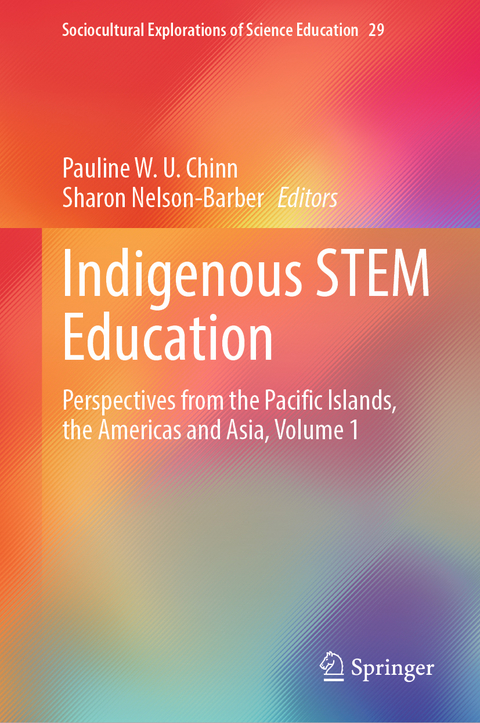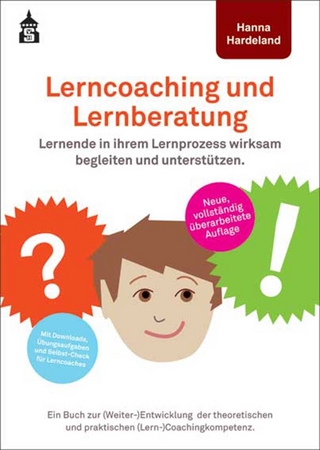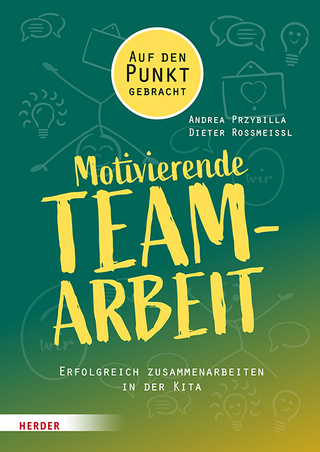
Indigenous STEM Education
Springer International Publishing (Verlag)
978-3-031-30450-7 (ISBN)
Themes of learning from elders, through practice and place-based experiences are found across cultures. Each chapter brings a uniquely Indigenous point of view to the educational transformation efforts taking place in these distinct contexts. In the second section the chapters use authentic research stories to explain many ways in which regular disciplinary policies and practices can impact Indigenous students' participation in STEM classrooms and careers. These authors go on to discuss ways to engage learners in STEM activities that are interconnected with the contexts of their lives.
lt;p>Pauline W. U. Chinn's great-grandparents arrived in Hawai i when it was the Kingdom of Hawai i and Hawaiian was the official language. Following annexation by the United States, Hawaiian language was forbidden as a language of education and government. As a secondary science teacher in Hawaii's public schools, she used science textbooks from the continental U.S. except for Plants and Animals of Hawai i, a class for non-college bound students. Creating place-based curriculum intersected her experiences of fishing, hiking, and gardening with western biology frameworks. Seeing students in this "terminal" class become engaged as their lives and places entered the curriculum led to doctoral research exploring the roles of culture, gender, language, and power in underrepresentation of kanaka ma oli, Native Hawaiians in science, technology, engineering, and mathematics (STEM). At the University of Hawai i at Manoa, her teacher education and professional development projects in Hawai i and American Samoa funded by the U.S. Department of Education and the National Science Foundation support research and education to develop teacher leaders who develop, place-based, culturally sustaining, inquiry-oriented curricula inclusive of diverse and underrepresented students. This work led to developing an Interdisciplinary M.Ed., Sustainability and a Graduate Certificate in Sustainability and Resilience Education.
Sharon Nelson-Barber, a sociolinguist and Senior Program Director at WestEd, has lifelong personal and professional experience in Indigenous communities. Her interests in STEM began early on as she accompanied her father and grandfather while subsistence hunting and fishing. Much of her research, funded by the National Science Foundation, centers on understanding ways in which students' cultural backgrounds influence how they make sense of mathematics and science education. She also conducts studies aimed at developing more equitable assessment and testing methods that account for cultural influences. She closely collaborates with other Indigenous researchers and community partners across the US, the Northern Pacific islands of Micronesia, and parts of Polynesia. She is co-founder of POLARIS (Pivotal Opportunities to Learn, Advance and Research Indigenous Systems), a research and development network that promotes healthier communities by integrating Indigenous perspectives for thriving education futures. An ongoing project convenes Indigenous elders and scientists to document technical solutions to climate change from both Indigenous and western academic perspectives, and heighten international attention to the need to preserve cultures and societies amidst rising waters.
Preface (SHARON NELSON-BARBER AND PAULINE W. U. CHINN).- Foreword - An Indigenous Sense of Place (GREGORY CAJETE).- PART I: CULTURE, LANGUAGE, KNOWLEDGE, AND PLACE AS FOUNDATION FOR LEARNING.- Chapter 1. Native Astronomy: A Skyward View (GREG CAJETE).- Chapter 2. Listening to the People: Reforming science education through incorporation of Chuukese traditional knowledge (MARGARITA B. CHOLYMAY).- Chapter 3. E 'Imi I ke 'Alanui, To Find the Way: A Native Hawaiian educator's Journey (ALYSON NAPUA BARROWS).- Chapter 4. KahuaA o: Science education through Hawaiian-language newspapers (JASON K. ELLINWOOD AND JOHANNA KAP MAIKA'I STONE).- Chapter 5. 'O kekumukeka'ao, The story is the source: The discipline of ancestral stories in nurturing Native Hawaiian scientists (HUIHUI KANAHELE-MOSSMAN).- Chapter 6. Developing a Framework for Integrating Systems of Local Indigenous Knowledge with Climate Education in the Mariana Islands (SHARON NELSON-BARBER, ELIZABETH DIAZ RECHEBEI, JOSE TILIPAO LIMES, ZANETTE JOHNSON).- Chapter 7. Culturally responsive science education for rural students: Connecting school science with local heritages in Thailand (NANTANA TAPTAMAT).- PART II: RESEARCH THAT TELLS OUR STORIES AND INFORMS POLICY AND PRACTICE.- Chapter 8. Perspective taking and psychological distance in children's picture books: differences between Native and Non-native authored books (MEGAN BANG, JASMINE GURNEAU, LORI FABER, ANANDA MARIN, MICHAEL MARIN, DOUGLAS MEDIN, SANDRA WAXMAN, JENNIFER WOODRING).- Chapter 9. Integrating Place, Indigenous and Western Science: Implications for Teacher Agency, Expertise, and Identity (PAULINE W. U. CHINN).- Chapter 10. Keystone characteristics that support cultural resilience in Karen refugee parents (SUSAN HARPER).- Chapter 11. Symmetry and halving: A way to teach mathematical foundations, based on the everyday knowledge of Yupiaq and Caroline Islanders (JERRY LIPKA, DORA ANDREW-IRHKE, MIUTY NOKAR, DAVID KOESTER, DONALD H. RUBENSTEIN, WALKIE CHARLES, EVELYN YANES, CAL HACHIBMA, RAPHAEL JIMMY).- Chapter 12. Understanding the geology of the Colombian Amazon through indigenous eyes: educational potential of an ethnogeology of the Uitoto territory (CAROLINA LONDOÑO, STEVEN SEMKEN, ELIZABETH BRANDT, CRISTINA GARZON).- Chapter 13. Indigenous rural students' attitudes and perceptions about ethnoscience in STEM instruction (SHARON NELSON-BARBER, ELISE TRUMBULL, URSULA SEXTON, ZANETTE JOHNSON).- Chapter 14. Researching Maori and Maori-medium science education (GEORGINA STEWART).- Chapter 15. Forum Kaupapa Maori science: A science fiction? (ELIZABETH MCKINLEY).
| Erscheinungsdatum | 06.08.2023 |
|---|---|
| Reihe/Serie | Sociocultural Explorations of Science Education |
| Zusatzinfo | XXV, 285 p. 1 illus. |
| Verlagsort | Cham |
| Sprache | englisch |
| Maße | 155 x 235 mm |
| Gewicht | 625 g |
| Themenwelt | Sozialwissenschaften ► Pädagogik ► Erwachsenenbildung |
| Schlagworte | ancestral stories • Autoethnography • Bilingualism in STEM education • Cross-Cultural learning in STEM education • Ethnogeology • heritage language • Indigenous knowledge and climate education • Indigenous learning in STEM education • Learning Community • Natural Environment • Sustainability education • Teacher agency • Western Science |
| ISBN-10 | 3-031-30450-0 / 3031304500 |
| ISBN-13 | 978-3-031-30450-7 / 9783031304507 |
| Zustand | Neuware |
| Informationen gemäß Produktsicherheitsverordnung (GPSR) | |
| Haben Sie eine Frage zum Produkt? |
aus dem Bereich


